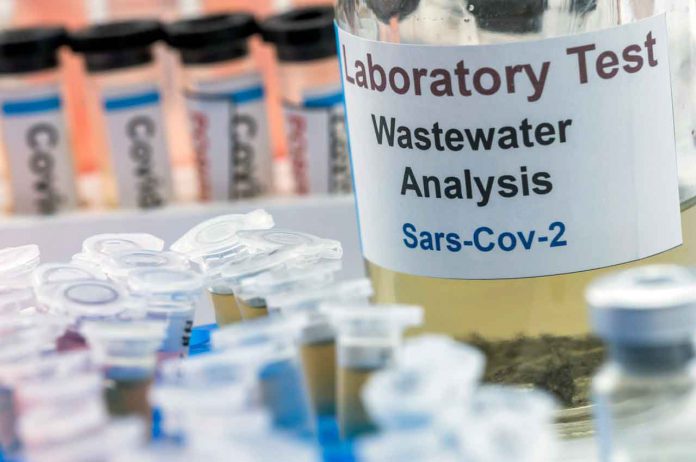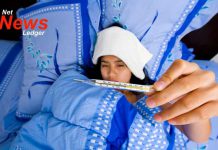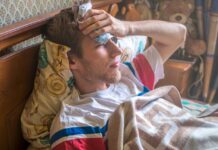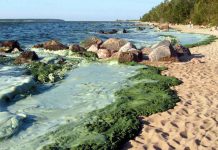THUNDER BAY – COVID-19 Update – The Thunder Bay District Health Unit is reporting 196 lab confirmed active cases of COVID-19 today in the district. There are 315 active lab confirmed cases.
There has been another fatality due to the virus. 78 people have died as a result of the virus in the Thunder Bay District to date.
50 people are in hospital in the Thunder Bay District and of that number, 11 are in Intensive Care Units.
Active Publicly Disclosed Outbreaks in High-Risk Settings
A table of all active institutional outbreaks of COVID-19 in TBDHU.
Exciting news! You can now find the city of #ThunderBay's COVID-19 #WastewaterData in a graph on our dashboard!
This data will be typically updated on Mondays and Fridays (it will next be updated on Tuesday due to the Family Day holiday). (1/4) #TBay pic.twitter.com/ZnW0nJBEzS
— TBay Public Health (@TBDHealthUnit) February 17, 2022
Indigenous Overview
Below are some of the latest updates from ISC for the week of February 17, 2022.
Vaccinations
As of February 15, 2022, over 86% of individuals aged 12 and older in First Nations, Inuit and territorial communities have received a second dose of an approved COVID-19 vaccine, and 23% have received a third/booster shot. Over 45% of individuals aged 5 to 11 have received at least one dose.
Vaccine information is updated and published on Thursdays and can be found at canada.ca/covid-vaccines-indigenous.
COVID-19 cases
As of February 16, 2022, the following case counts have been reported from First Nations communities:
- 81 586 confirmed positive COVID-19 cases, of which 10 695 are the
- Omicron variant
- 3 762 active cases
- 2 902 hospitalizations
- 77 184 recovered cases
- 640 deaths
For the week of February 10 to February 16, 2022, the average daily reported active case counts dropped by 9.5% compared to the daily average the week before.
This compares to a
- 13.2% decrease in average daily cases reported the week of February 3 to 9 from the week prior
- 3.8% decrease in average daily cases reported the week of January 27 to February 2 from the week prior
Case count information is updated and published daily Monday through Friday and can be found at Canada.ca/indigenous-covid-cases.
Requests for Federal Assistance (RFA) approvals and extensions
- Operation REMOTE IMMUNITY 3.0 RFA was approved on November 10, 2021. Canadian Rangers will continue supporting provincial vaccination programs in remote Indigenous communities in Ontario until February 20, 2022.
- Kashechewan First Nation (ON) RFA was approved on February 2, 2022. Canadian Rangers are providing COVID-19 mitigation support in the community. A two week extension was approved for continued support until March 2, 2022.
- Mishkeegogamang First Nation (ON) RFA was approved on February 9, 2022. Canadian Rangers will provide COVID-19 mitigation support in the community from February 11 until at least February 24, 2022.
- Weenusk (Peawanuck) First Nation (ON) RFA was approved on January 30, 2022. Canadian Rangers are providing COVID-19 mitigation support in the community. A two week extension was approved for continued support until February 27, 2022.
- Eabametoong First Nation (ON) RFA was approved on February 10, 2022. Canadian Rangers are providing COVID-19 mitigation support in the community until at least February 23, 2022.
- Attawapiskat First Nation (ON) RFA was approved on February 16, 2022. Canadian Rangers are providing general COVID-19 support in the community until at least March 2, 2022.
Community responses to COVID-19 and Government of Canada support
Below are just a few examples of the Government of Canada’s and Indigenous communities’ efforts to support COVID-19 emergency preparedness and recovery.
Partnering with Alberta’s nursing students
Since April 2021, in collaboration with ISC, over 70 nursing students from the University of Alberta Faculty of Nursing and Red Deer College have supported the rollout of COVID-19 vaccine in multiple First Nations communities in central Alberta. Student nurses have been fully integrated into all aspects of immunization health, including: teaching, post-care monitoring, and vaccine administration and management. These students gained both clinical experience and first-hand insight into community healthcare, culture and resiliency in First Nations.
In addition to student nurses, ISC Alberta’s surge teams are composed of registered nurses, licensed practical nurses, paramedics, environmental public health officers, dental hygienists, dental therapists and staff from the Canadian Red Cross. Many thanks to these individuals for their efforts in assisting Alberta First Nations during the pandemic.
Temporary isolation and clinical facilities in Atlantic Canada
Annapolis Valley First Nation, located in Nova Scotia, has been working with ISC to procure and install a mobile unit to provide three isolation spaces. At the request of the community, the isolation spaces were provided to support community members who test positive for COVID-19 and who require a place to safely isolate outside their home and protect other members of their household.
Elsipogtog First Nation, located in New Brunswick, has also been working with ISC to procure and install two mobile structures to provide clinical space for COVID-19 screening and PCR testing and to administer COVID-19 vaccinations. The additional space will ensure these critical services can be delivered without impeding the service delivery of the Elsipogtog Health and Wellness Centre.
Since the start of the pandemic, 24 First Nations in Atlantic Canada have received support from ISC to procure mobile structures or to retool existing facilities as isolation, screening and vaccination centers.
Supports currently available to First Nations, Inuit and Métis communities
Across the country, ISC Regional Offices and Regional Medical Officers of Health remain available to assist First Nations, Inuit and Métis communities and organizations should they require immediate assistance with an outbreak or supports such as temporary infrastructure, rapid testing or PPE.
Indigenous communities and organizations can also continue to request needs-based funding from the Indigenous Community Support Fund. This fund provides Indigenous leadership and organizations with the flexibility needed to design and implement community-based solutions to prevent, prepare for and respond to the spread of COVID-19 within their communities.
These funds can be used for measures including, but not limited to
- support for Elders and vulnerable community members
- measures to address food insecurity, such as support for the purchase, transportation and distribution of food; and traditional foods such as hunting and fishing
- educational and other support for children
- mental health assistance and emergency response services
- preparedness measures to prevent the spread of COVID-19
International Outlook
WHO ANNOUNCES FIRST TECHNOLOGY RECIPIENTS OF MRNA VACCINE HUB WITH STRONG SUPPORT FROM AFRICAN AND EUROPEAN PARTNERS
Egypt, Kenya, Nigeria, Senegal, South Africa and Tunisia to establish mRNA vaccine production
Geneva/Brussels, 18 February 2022 — At the European Union – African Union summit in Brussels today WHO Director-General, Dr Tedros Adhanom Ghebreyesus, announced the first six countries that will receive the technology needed to produce mRNA vaccines on the African continent. Egypt, Kenya, Nigeria, Senegal, South Africa and Tunisia all applied and have been selected as recipients.
The announcement was made at a ceremony hosted by the European Council, France, South Africa and WHO in the presence of President Macron, President Ramaphosa, and the President of the European Council, Charles Michel.
The global mRNA technology transfer hub was established in 2021 to support manufacturers in low- and middle-income countries to produce their own vaccines, ensuring that they have all the necessary operating procedures and know-how to manufacture mRNA vaccines at scale and according to international standards.
Primarily set up to address the COVID-19 emergency, the hub has the potential to expand manufacturing capacity for other products as well, putting countries in the driver’s seat when it comes to the kinds of vaccines and other products they need to address their health priorities.
Depending on the infrastructure, workforce and clinical research and regulatory capacity in place, WHO and partners will work with the beneficiary countries to develop a roadmap and put in place the necessary training and support so that they can start producing vaccines as soon as possible.
WHO Director-General, Dr Tedros Adhanom Ghebreyesus said: “No other event like the COVID-19 pandemic has shown that reliance on a few companies to supply global public goods is limiting, and dangerous. In the mid- to long-term, the best way to address health emergencies and reach universal health coverage is to significantly increase the capacity of all regions to manufacture the health products they need, with equitable access as their primary endpoint.”
President Cyril Ramaphosa, of South Africa said: “This is an initiative that will allow us to make our own vaccines and that, to us, is very important. It means mutual respect, mutual recognition of what we can all bring to the party, investment in our economies, infrastructure investment and, in many ways, giving back to the continent.”
President Emmanuel Macron, of France said: “Improved public health benefits, supporting African health sovereignty and economic development are the principal goals of strengthening local production in Africa. In an interconnected world, we need stronger and new partnerships between countries, development partners and other stakeholders to empower regions and countries to fend for themselves, during crises, and in peace time.”
President Charles Michel, European Council said: “We need to create an environment where every scientist, health worker, and government can band together for a common cause. Working together to build new solutions to protect what is most precious – our health and our lives.“
President Ursula von der Leyen, European Commission said: “I am very glad to see this ambitious project move forward. We have been talking a lot about producing mRNA vaccines in Africa. But this goes even beyond. This is mRNA technology designed in Africa, led by Africa and owned by Africa, with the support of Team Europe.”
To ensure that all countries build the necessary capacity to produce their own vaccines and other health technologies, WHO has been working to establish a biomanufacturing workforce training hub that will train people from all interested countries in scientific and clinical research and production capacity. The training hub will be announced in the coming weeks.
In addition, WHO’s current regulatory strengthening activities in low- and middle-income countries will expand through a global benchmarking tool that assesses countries’ ability to ensure the quality, safety and efficacy of health products and provides training where improvements are needed to build regulatory authorities that are agile and fit-for-purpose for the future.
The WHO mRNA technology transfer hub is part of a larger effort aimed at empowering low- and middle-income countries to produce their own vaccines, medicines and diagnostics to address health emergencies and reach universal health coverage.
The initial effort is centred on mRNA technologies and biologicals, which are important for vaccine manufacturing and can also be used for other products, such as insulin to treat diabetes, cancer medicines and, potentially, vaccines for other priority diseases such as malaria, tuberculosis and HIV. The ultimate goal is to extend capacity building for national and regional production to all health technologies.







